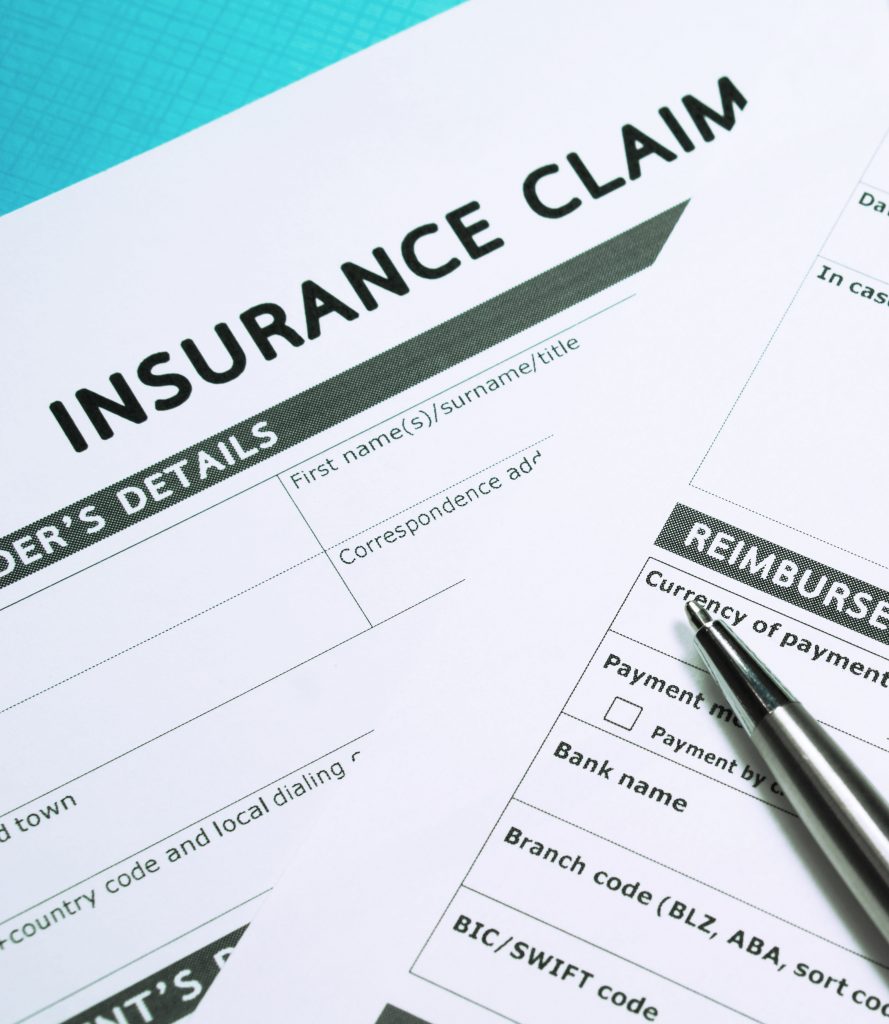Introduction
Car accidents are an unfortunate but undeniable part of life. One moment you’re cruising along, minding your own business, and the next, BAM! You’re involved in a collision. And when that happens, there’s a good chance you’re going to sustain some injuries. They can range from minor bumps and bruises to life-threatening conditions. Even if you don’t think you’re hurt, it’s important to get checked out by a doctor. You may have hidden injuries that could worsen if not treated promptly.
According to the National Highway Traffic Safety Administration (NHTSA), over 32,600 people were killed in motor vehicle crashes in 2020. That’s an average of over 89 people dying every day. And for every fatal crash, there are countless more that result in injuries. In fact, the NHTSA estimates that over 4.5 million people were injured in car accidents in 2020.
If you’ve been injured in a car accident, you’re not alone. Millions of people go through this every year. And while it can be a scary and overwhelming experience, it’s important to remember that there is help available. There are resources to help you get the medical care you need, file a claim with your insurance company, and get back on your feet as soon as possible. For the purposes of this article, we will discuss 3 common types of injuries caused by car accidents as well as what you can do if you find yourself in such a situation.
Whiplash
Whiplash is a neck injury that occurs when your head is suddenly jerked forward and then back again. This can happen in a car accident, when your car is hit from behind. Whiplash can cause a variety of symptoms, including neck pain, stiffness, and headaches. It can also lead to more serious problems, such as nerve damage and spinal cord injuries.
If you think you have whiplash, it’s important to see a doctor right away. Treatment for whiplash may include pain medication, physical therapy, and chiropractic care.
Broken Bones
Broken bones are another common injury in car accidents. They can occur when your body is struck by a hard object, such as the steering wheel or dashboard. Broken bones can be painful and debilitating, and they can take weeks or even months to heal.
If you have a broken bone, it’s important to see a doctor right away. Treatment for broken bones may include surgery, casting, or splinting.
Head Injuries
Head injuries are the most serious type of injury that can occur in a car accident. They can range from minor concussions to life-threatening brain damage. Head injuries can be caused by a variety of factors, such as being struck by an object, being thrown from a vehicle, or having your head hit the windshield.
If you have a head injury, it’s important to seek medical attention immediately. Treatment for head injuries may include surgery, medication, and rehabilitation.
Injury After a Car Accident: Understanding the Physical Toll
The aftermath of a car accident can be a harrowing experience, both physically and emotionally. Beyond the immediate shock and disorientation, victims often face a myriad of injuries that can have lasting consequences. Understanding the common injuries sustained in car accidents is crucial for proper diagnosis, treatment, and recovery.
Common Injuries
Car accidents unleash a relentless force that can inflict a wide range of injuries. Some of the most prevalent include:
- Whiplash: This condition arises when the head is forcefully thrown back and forth, causing damage to the neck muscles, ligaments, and nerves.
- Broken Bones: The impact of a crash can shatter bones, leading to excruciating pain, swelling, and loss of mobility.
- Head Injuries: Trauma to the head can range from mild concussions to life-threatening brain damage. Symptoms may include headaches, dizziness, and memory loss.
- Spinal Cord Injuries: These devastating injuries affect the spinal cord, potentially causing paralysis and loss of sensation.
Broken Bones: A Deeper Dive
Broken bones are a common consequence of car accidents, affecting an estimated 20% of victims. The severity of the injury depends on several factors, including the force of the impact, the location of the fracture, and the type of bone involved. Small, hairline fractures may cause little pain or discomfort, while severe breaks can immobilize a limb and require surgery.
Broken bones can manifest in a variety of ways. Sometimes, the bone may break cleanly, creating a sharp, jagged edge. In other cases, the bone may shatter into multiple fragments, complicating the healing process. The location of the fracture also influences its severity. Breaks near joints or blood vessels can be particularly serious.
Treatment for broken bones typically involves immobilization through a cast or splint. In some cases, surgery may be necessary to reset the bone or repair damaged tissues. Physical therapy plays a crucial role in rehabilitation, helping to restore range of motion and strengthen the affected area. The healing time for broken bones varies depending on the severity of the injury, but it can take several weeks or even months before full recovery is achieved.
Injury After a Car Accident: A Guide to Seeking Medical Treatment
You just can’t predict when a car accident will turn your life upside down. In the aftermath of a collision, it’s easy to feel disoriented and unsure of what to do. One of the most important steps you can take is to seek medical attention promptly, even if you think you are uninjured.
Seeking Medical Treatment
After a car accident, your first priority should be to get checked out by a doctor. Even if you don’t feel any pain or discomfort, you may have sustained injuries that are not immediately apparent. Internal bleeding, for example, can be a serious threat if left untreated. Ignoring medical advice might have irreversible consequences.
The sooner you receive medical attention, the sooner you can start the healing process. A doctor can evaluate your injuries, provide treatment, and recommend follow-up care. Additionally, having a medical record of your injuries can be invaluable if you need to file an insurance claim or pursue legal action.
Types of Injuries After a Car Accident
Car accidents can cause a wide range of injuries, including:
- Head injuries, such as concussions, skull fractures, and traumatic brain injuries
- Neck and back injuries, such as whiplash, spinal cord injuries, and herniated discs
- Chest injuries, such as broken ribs, punctured lungs, and heart damage
- Extremity injuries, such as broken bones, sprains, strains, and amputations
li>Abdominal injuries, such as internal bleeding, organ damage, and pelvic fractures
When to Seek Medical Attention
You should always seek medical attention after a car accident, regardless of how minor it may seem. Some injuries, such as internal bleeding, may not be apparent immediately. It is better to be safe than sorry.
Seek medical attention immediately if you experience any of the following symptoms:
- Headache, nausea, or vomiting
- Neck or back pain
- Chest pain or difficulty breathing
- Abdominal pain or tenderness
- Broken bones or open wounds
- Loss of consciousness or confusion
What to Expect at the Doctor’s Office
When you go to the doctor after a car accident, they will likely perform a physical examination and ask you about your symptoms. They may also order imaging tests, such as X-rays or MRI scans, to get a better look at your injuries. Based on their findings, the doctor will develop a treatment plan and provide you with instructions for follow-up care.
The Importance of Follow-Up Care
It is important to follow your doctor’s instructions carefully and attend all follow-up appointments. This will help you heal properly and prevent further complications.
Following a car accident, it is crucial to prioritize your health and well-being. Seeking prompt medical attention, understanding the potential injuries, and adhering to follow-up care are essential steps toward recovery and minimizing long-term consequences.
Injury After a Car Accident: What You Need to Know
A car accident can be a traumatic experience, not only physically but also financially. If you’ve been injured in a car accident, it’s crucial to understand your rights and options for seeking compensation.
Insurance Coverage
Most car insurance policies include coverage for medical expenses incurred as a result of injuries sustained in an accident. The amount of coverage and the specific terms and conditions will vary depending on your policy. It’s essential to familiarize yourself with your coverage and ensure that it meets your needs.
Filing a Claim
If you’ve been injured in a car accident, you should file a claim with your insurance company as soon as possible. The claims process can be complex, so it’s advisable to seek legal advice if you have any questions or concerns. Your attorney can help you navigate the insurance process and ensure that you receive the full compensation you’re entitled to.
Compensation for Injuries
The amount of compensation you receive for your injuries will depend on several factors, including the severity of your injuries, your lost wages, and your pain and suffering. Medical bills, rehabilitation costs, lost income, and emotional distress are all factors that may be considered when determining compensation.
Choosing an Attorney
If you’ve been seriously injured in a car accident, it’s highly advisable to consult with an experienced attorney. An attorney can help you understand your legal rights, negotiate with the insurance company, and represent you in court if necessary. Choosing the right attorney can make a significant difference in the outcome of your case.
Long-Term Effects
Injuries sustained in a car accident can have long-term physical, emotional, and financial consequences. It’s important to seek medical attention promptly and to document your injuries and expenses thoroughly. This documentation will be essential if you pursue legal action or seek compensation from the responsible party.
Injury After a Car Accident
After being involved in a car accident, it’s imperative to seek medical attention right away. Even if you don’t feel injured, it’s possible to have sustained injuries that may not become apparent until later. Injuries from car accidents can range from minor to severe, and the recovery process can vary depending on the extent of the injury.
Recovering from Injuries
The recovery process from a car accident injury can vary based on the severity of the injury. Minor injuries, such as bruises or cuts, may heal quickly with minimal treatment. More severe injuries, such as broken bones or internal injuries, may require extensive rehabilitation and long-term care.
It’s crucial to follow your doctor’s instructions carefully during recovery. This may include taking medication, attending physical therapy, or making lifestyle changes. Rest is also essential for healing. Getting enough sleep and avoiding strenuous activity can help your body recover more quickly.
Seeking Medical Attention
If you’ve been involved in a car accident, don’t hesitate to seek medical attention, even if you don’t think you’re injured. Some injuries, such as whiplash or internal bleeding, may not show symptoms immediately. Seeking medical attention promptly can ensure that any injuries are diagnosed and treated properly.
Common Car Accident Injuries
Car accident injuries can range widely in type and severity. Some of the most common injuries include:
- Whiplash
- Broken bones
- Head injuries
- Spinal cord injuries
- Internal injuries
The severity of these injuries can vary depending on the type of accident, the speed of the vehicles involved, and whether or not the occupants were wearing seatbelts.
Getting Legal Help
If you’ve been injured in a car accident, you may be wondering what your legal options are. In some cases, you may be able to file a personal injury claim against the at-fault driver. A personal injury lawyer can help you determine if you have a case and can guide you through the legal process.
Injury After a Car Accident
After a car accident, it’s common to experience injuries ranging from minor cuts and bruises to severe fractures and head trauma. The severity of injuries depends on various factors such as the speed and impact of the collision, type of vehicle involved, and individual factors like seatbelt use and overall health.
Preventing Injuries
Minimizing the risk of injuries during a car accident is crucial. Here are some essential tips to prevent or reduce the severity of injuries:
**1. Buckle Up**: Wearing a seatbelt significantly reduces the likelihood of being ejected from the vehicle. It also helps keep you in place, preventing forceful movement that can cause injuries to your head, neck, chest, and abdomen.
**2. Drive Defensively**: Anticipating potential hazards and driving cautiously can help avoid accidents. Maintain a safe following distance, be aware of your surroundings, and avoid distractions like using your phone or eating.
**3. Avoid Distractions**: Keep your eyes on the road and hands on the wheel at all times. Distractions, such as texting, talking on the phone, or adjusting the radio, can divert your attention and increase the risk of a crash.
**4. Mind Your Speed**: Speed limits exist for a reason. Driving within the legal limits gives you more time to react to hazards, reduces the impact force in a collision, and improves vehicle stability.
**5. Regular Vehicle Maintenance**: Ensure your vehicle is in good working condition. Regular maintenance checks, like tire rotations, brake inspections, and fluid changes, can prevent potential breakdowns and accidents that might cause injuries.
**6. Know Your Vehicle’s Safety Features**: Familiarize yourself with the various safety features in your car, such as airbags, anti-lock brakes, and electronic stability control. Understanding how these systems function can help you use them effectively to prevent or minimize injuries in a crash.





Leave a Reply